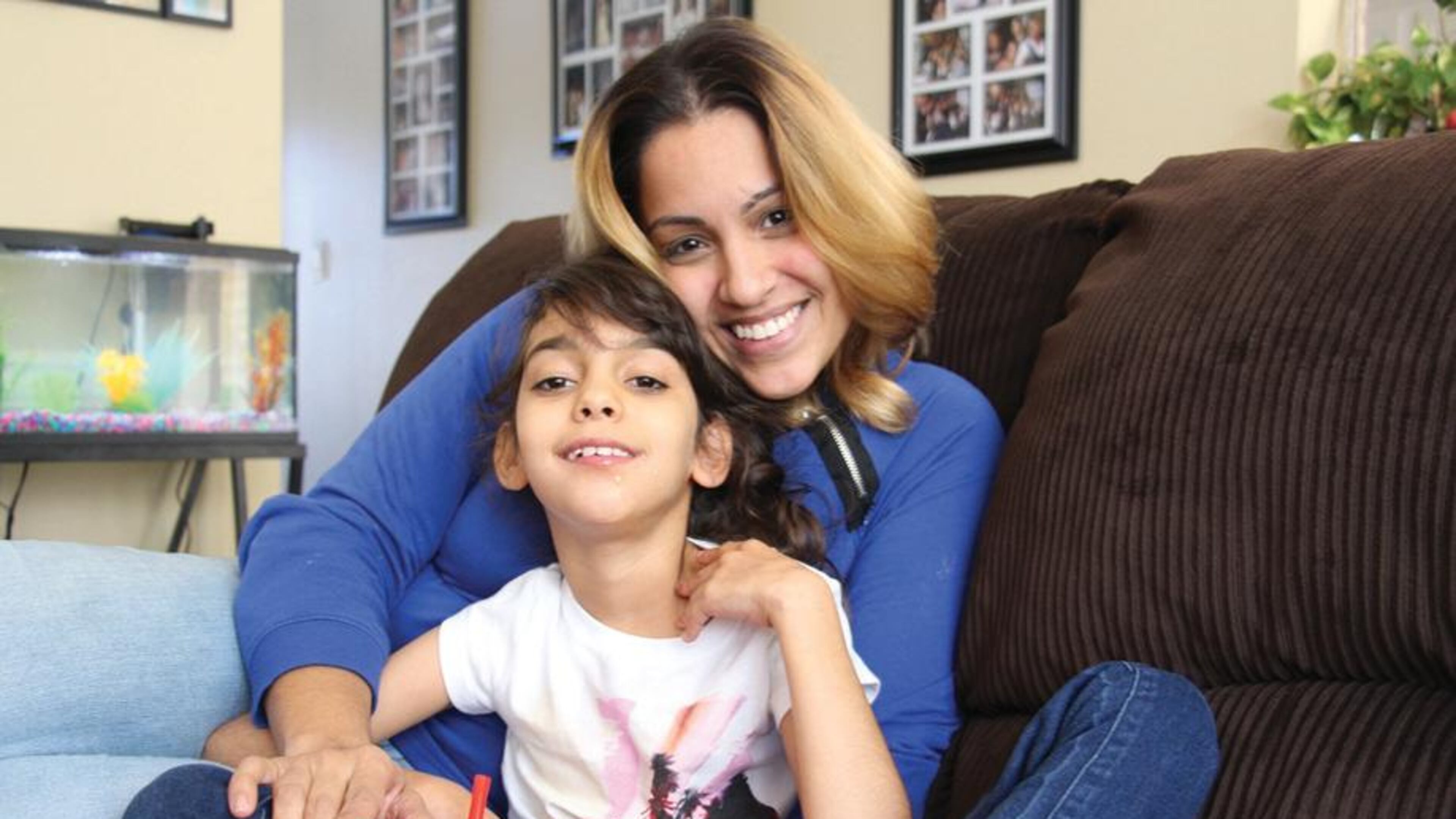Nuestra Comunidad: Painful rebirth for Puerto Ricans in María aftermath

Almost a month has passed since Hurricane María ravaged Puerto Rico, and its lingering effects continue to create devastating problems for Puerto Ricans, who are trying to move forward despite the fact that most of the island still lacks basic services such as electricity and water, and in the worst cases, shelter.
In the midst of dealing with catastrophic consequences, which include damages to the island’s already dilapidated infrastructure, some Puerto Ricans have made the decision to leave the island in search of better living conditions. For some, their medical conditions have forced them to leave behind their homes and possessions, in the hope of finding a way to get better elsewhere.
When Lorna Rodríguez’s cousin called and offered her a place to live in Johns Creek, she didn’t have to think twice about it.
Rodríguez is the mother of two young girls: Natalia, 10 years old, and Amelia, 2 years old. Natalia has cerebral palsy, a medical condition which can compromise brain functions and affect the development of those who suffer from it.
"If she doesn't have her medications, she can have seizures. If she doesn't have her medications, she can have a setback in the positive steps forward we've had with her," explained Rodríguez in an interview with MundoHispánico.
It was because of Natalia's condition that her family left the island on a special flight funded by former baseball player and Puerto Rican native Jorge Posada. Other individuals with medical conditions such as kidney disorders and cancer were also aboard the flight.
Rodríguez is grateful for the opportunity to escape a situation in which her daughter’s health was at risk, but the unexpected departure is still a shock.
‘Having this opportunity to leave the island for a while or permanently was difficult, because even though I may have wanted to leave before, it’s not the same thing to leave with a set decision, with three or six months or a year of planning, compared with simply: “you’re leaving Friday, the flight’s at five,”’ she said.
Rodríguez has been working diligently around the clock to have all her family’s affairs in order for the move to Georgia. For example, Natalia is already registered for school, and Rodríguez made sure her Medicaid was active ahead of time so that she can purchase her daughter’s medicine, which is very costly without insurance.
“You never think something so painful will happen to you; not being able to reach your family, not having enough food or water,” lamented Rodríguez. She said that she does not see the situation on the island improving any time soon, particularly for residents outside of the metro San Juan area, who live in regions which continue to experience communication issues.
Although she is glad to be gone, Rodríguez still feels the pain of her people.
“I feel at peace because I know it was a good decision,” she said. “When I don’t feel good is when I see what’s going on in Puerto Rico, because in your heart you want to be there. In your heart you want what you had at home, and suddenly starting over is literally a process. It’s a rebirth, but it’s a painful rebirth, because it was forced on you.”
Rodríguez, who has fought for years to get her daughter the treatment she needs, addressed her compatriots who, though their circumstances differ, also face an uphill battle.
“Don’t tire of fighting. There is no such thing as a battle lost,” said Rodríguez. “In Natalia’s case, there were a lot of difficult moments where I grew tired and I didn’t want to know anything else about therapy or school or doctor appointments or all the other follow up you have to do. But there’s no such thing as a fight not worth fighting for. You get tired, you get worn out, you get burned out, but if you’re perseverant, you’ll see the results.”
